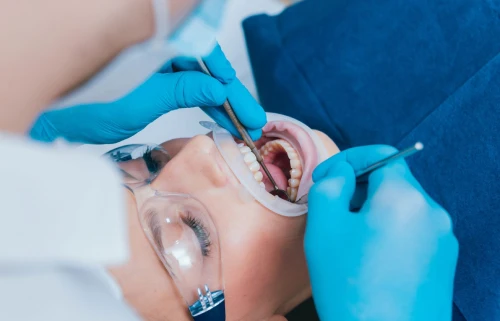Oral Surgery
Oral Surgery is a specialized branch of dentistry that deals with the diagnosis and treatment of diseases, injuries, and defects in the mouth, jaw, face, and neck. It involves a variety of procedures such as tooth extraction, dental implants, bone grafting, corrective jaw surgery, soft tissue grafting and more. Oral surgeons are highly trained professionals who can provide patients with safe and effective treatments to restore their oral health. They use advanced technologies to diagnose and treat oral conditions in order to provide the best possible outcomes for their patients.

Treatments available:
- Disimpaction: Wisdom teeth are the last set of molars that usually come in at the back of your mouth. They are often referred to as third molars and can cause a variety of problems. If they become impacted or don’t have enough room to grow properly, tooth removal may be necessary to avoid further complications. Wisdom tooth removal is a common procedure and can be done under local anesthesia or general anesthesia depending on the patient’s preference and the complexity of their particular case. The procedure involves making an incision in the gum tissue, removing any bone blocking access to the tooth, and then extracting it from its socket. Afterward, stitches may be placed in order to close up the wound and promote healing.
- Tooth extraction: It is a procedure that involves removing a tooth from the socket in the jawbone. It can be done for a variety of reasons, such as to remove teeth that are damaged or decayed, to make room for braces, or to prepare for dentures.
- Oral cancer treatment: Oral cancer affects the tissues of the mouth and throat. Early detection and treatment can help to improve patient outcomes. In recent years, advancements in technology have enabled doctors to detect oral cancer earlier and more accurately than ever before. This includes techniques such as imaging with CT scans and MRI, endoscopy, biopsy, and molecular testing. Treatment options for oral cancer include surgery, radiation therapy, chemotherapy, targeted therapy, immunotherapy, and palliative care. It is important to take preventive measures such as avoiding smoking or chewing tobacco to reduce the risk of developing oral cancer.
- Dental implants
- Minor surgical procedure such as tongue tie and lip tie surgery, mucocele removal etc.
- Cosmetic dental surgery such as dimple making on chick
